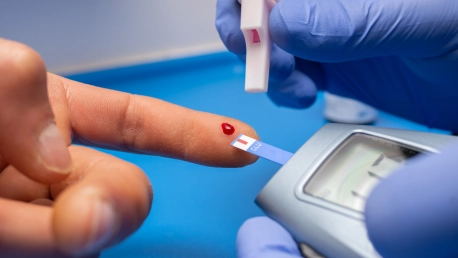Recent clinical advancements by PolTREG, a pioneering Polish biotechnology company, have cast a hopeful light on the treatment of type-1 diabetes (T1D). The company’s breakthrough Treg therapy, PTG-007, has shown great promise in fundamentally altering the management of this autoimmune disease. T1D is characterized by the immune system’s relentless assault on pancreatic cells responsible for insulin production. Conventional treatments have primarily focused on managing symptoms through external insulin injections and lifestyle adjustments without addressing the root cause. However, PolTREG’s approach aims to curb the immune attack, thereby preserving the pancreas’s ability to produce insulin naturally.
Promising Results: PTG-007 and Insulin Production
PolTREG’s clinical trial results have been nothing short of revolutionary, demonstrating that patients treated with PTG-007 continue to produce their insulin. Remarkably, this has been observed for up to an astounding 12 years, an achievement that marks a quantum leap in both the safety and efficacy of regulatory T-cell (Treg) therapies. The untreated control group, by contrast, showed significant declines in insulin production, underscoring the therapeutic value of PTG-007. Beyond mere numbers, this extended period of insulin production implies that patients could potentially avoid lifelong reliance on insulin injections, significantly enhancing their quality of life.Furthermore, patients treated with PTG-007 also experienced longer periods of disease remission, some extending up to four years. Perhaps more encouragingly, no significant safety concerns emerged during these trials. Unlike other therapies that may trade efficacy for safety, PTG-007 has managed to achieve a robust safety profile. This aspect is particularly beneficial for young patients who face a lifetime of potential side effects from conventional treatments. The implications of these findings are profound; not only does PTG-007 lessen the need for frequent insulin administrations, but it also mitigates long-term complications typically associated with T1D.
Expanding Horizons: MS and ALS
While the success of PTG-007 in T1D treatment is monumental, PolTREG is not stopping there. The company is extending its expertise in Treg therapies to tackle other challenging autoimmune conditions, such as multiple sclerosis (MS) and amyotrophic lateral sclerosis (ALS). Adept at harnessing the immune-modulating properties of Tregs, the company aims to introduce its therapies to conditions that are notoriously difficult to manage. The ongoing efforts include a phase 2 trial for MS that is slated to start later this year. This trial will be crucial in determining whether the success of PTG-007 can be replicated in the treatment of MS, offering hope to patients who have few effective treatment options.Next year promises to be even more exciting as PolTREG launches its first-in-human CAR-Tregs trial targeting both MS and ALS patients. This ambitious trial seeks to explore the application of chimeric antigen receptor (CAR) technology in Tregs, potentially setting a new benchmark for treating these debilitating conditions. The inclusion of ALS in this study is particularly noteworthy, owing to the limited treatment options currently available for this progressively fatal disease. Should these trials prove successful, the scope of Treg therapy could expand substantially, offering new avenues for treating a range of autoimmune and neurodegenerative diseases.
Future Directions and Broader Biotech Context
PolTREG, a leading Polish biotechnology firm, has made significant strides in the treatment of type-1 diabetes (T1D) with their advanced Treg therapy, PTG-007. This innovative approach has the potential to revolutionize the management of this chronic autoimmune condition. T1D occurs when the immune system aggressively targets and destroys pancreatic beta cells, which are essential for insulin production. Traditional treatments have mainly centered on symptom management through external insulin injections and lifestyle modifications, without tackling the underlying cause of the disease. PolTREG’s groundbreaking therapy seeks to inhibit the immune system’s attack on these critical pancreatic cells, thereby preserving the pancreas’s natural ability to produce insulin. This represents a paradigm shift in how T1D could be treated, moving away from merely addressing symptoms to potentially offering a more permanent solution. By potentially maintaining the body’s endogenous insulin production, PTG-007 offers new hope for individuals struggling with the daily challenges and risks associated with type-1 diabetes.









